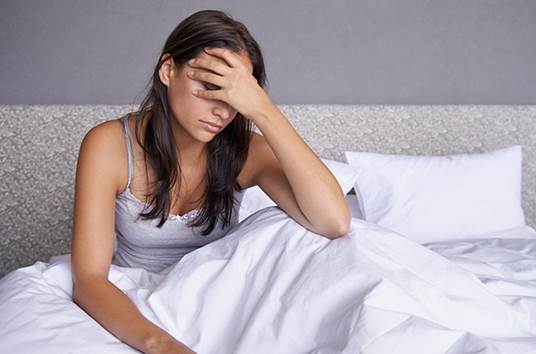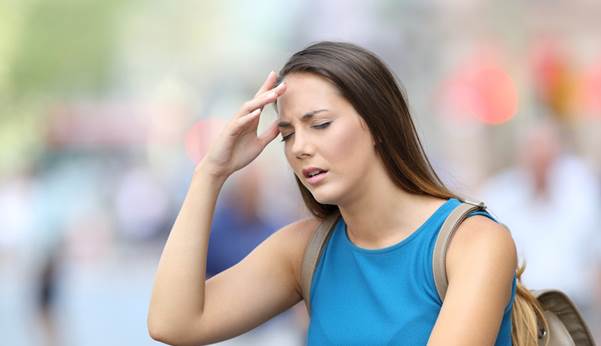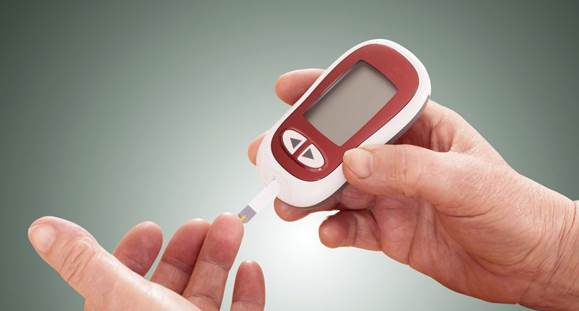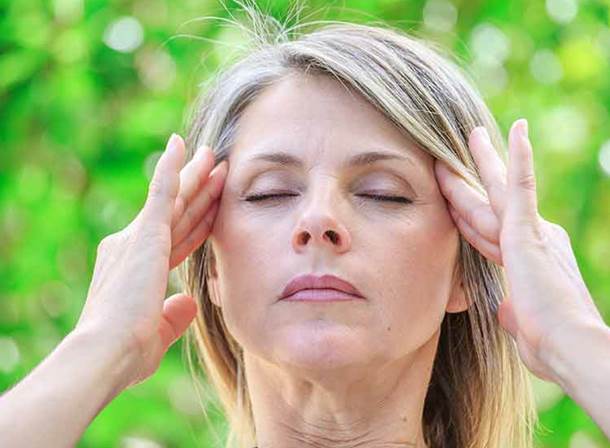
Might you be going through sudden dizziness when you wake up in the morning? It may be tied to your sleep – read on to find out some reasons for it, and what you can do to minimize it.

Imagine this: Waking up in the morning becomes a chore for you. Instead of feeling refreshed and ready to start your day after a good night’s sleep, you find yourself feeling unusually tired, groggy, and stumbling to your day due to dizziness. You might think it is due to sleeping on an uncomfortable bed, but even when you try to sleep on the best mattresses and using the most comfortable beddings does not seem to help, even from bear mattress.
You stumble your way out of bed, and you feel as though you might faint. The room spins around you even after taking a cold shower, or brushing your teeth.
That is an uncomfortable feeling to experience. However, what causes dizziness after waking up? How can you reduce the incidences of it happening?
First off, what is dizziness?

Contrary to popular belief, dizziness is not a condition on its own. It just acts as a sign that something else is happening in your body. It shows up as a feeling of imbalance, lightheadedness, or your environment “spinning” around you.
Dizziness can also be accompanied by seizures or actual fainting. When you are an older individual or suffer from certain health conditions, you are at a higher risk of falling and injuries.
What are some of the reasons behind morning dizziness?
Dizziness does not really have one reason, as it might be due to several causes. Ranging from underlying health conditions you may not know about suchas sleep apnea, to a night filled with too much fun and drinking.
Morning headaches are a side effect of dizziness and sleep apnea in particular, so you need to know whether the dizziness is occurring as an isolated case or if it is accompanied by other symptoms. Keep in mind though, that dizziness in the morning can occur to anyone, and most of the time is not a major reason for worry.
If you are dizzy immediately after waking up, for instance, it could be because the body is going through a sudden change of balance from a reclined posture to a sitting or standing one. The sudden change of posture makes the fluid in your inner ear shift very quickly (this fluid is among the things the body uses to maintain balance), and can make you feel lightheaded.
In addition, issues with respiratory illnesses such as sinuses, flu and common colds increase the chances of dizziness. This is due to excess fluid accumulating in the sinuses and making them swell up, and this puts pressure on the inner ear. Some other reasons for dizziness include:
The occurrence of sleep apnea

Sleep apnea is one of the most common conditions today, but you may not realize you have it until someone else points it out or whether you are keen enough to know the signs – such as a roommate or your partner. The dizziness that comes with the condition is mainly due to breathing patterns during sleep.
Sleep apnea is a condition that obstructs your breathing during sleep momentarily. That means that there are certain points during the night that you suddenly stop breathing for some time, then suddenly start again.
The frequent interruption in breathing leads to poor levels of oxygen in the body, and that will lead to headaches and dizziness when you wake up.
Dehydration
Hydration is not only important for maintaining the optimal functionality of the body during the day, but it also helps the body to recover during sleep – and one of the major culprits of dehydration is alcohol.
Contrary to popular belief, alcohol dehydrates the body, as it stops the body from producing anti-diuretic hormone that helps in water absorption. This makes the body lose more fluid than usual because you urinate more often and also vomit. And that is part of the reason hangovers can be very uncomfortable, while increasing the risks of alcohol related injuries.
Other reasons for dehydration include not taking in sufficient fluids, working in very hot environments, sweating excessively, and also taking a lot of caffeinated drinks.
Low blood sugar

Another surprising cause to make the list is having low blood sugar levels – particularly in individuals that have diabetes. If a person has insulin medication or any others, they can become hypoglycemic if the dose is too high, or they have not eaten enough food the previous night. This usually goes away once the person eats some food.
Hypoglycemia can also happen even if you do not have diabetes. This means that if you regularly experience dizziness in the morning and feel very weak in between snacks or meals, there is a chance you have the condition, so you need to have a medical checkup to ascertain the reason.
Medications and their doses
Before taking any medication, it is important to discuss with your doctor about their effects, and if there are alternatives that can be less harsh (if they are affecting you negatively). The doctor can also change the time and dose, to see if it will help.
Tips to reduce dizziness

You may not be aware of it, but the most important factor to combating and reducing morning dizziness is simpler than you realize – stay hydrated throughout your day.
Thirst is simply a pointer that the body is dehydrated, so drink plenty of water even if you are not feeling thirsty. This is particularly true if your job is a physically demanding one, if you regularly do intensive exercise, or you work outside – aim to drink at least eight cups a day.
In addition, you need to avoid taking alcohol, especially before going to sleep, and you can also keep a glass of water next to your bed to take when you wake up in the morning.
Conclusion
Regularly waking up feeling dizzy even after taking these measures is a sign that something else is going on in your body, and you need to seek medical advice before doing anything else. Otherwise, dizziness is common to many, and if you make an effort to take care of yourself, you can reduce the chances of it happening.

Leave a Reply